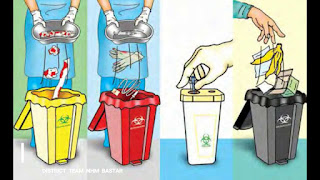Pharmaceutical waste management

Pharmaceutical waste is any waste that contains medicinal drugs that are expired, unused, contaminated damaged or no longer needed. Pharmaceutical waste management Our waste services can help with the collection and disposal. Pharmaceutical waste can not be disposed of in the usual way. Special care and precautions must be taken when handling and disposing of pharmaceutical waste due to its dangerous nature. If your pharmaceutical waste is not disposed of appropriately, the effects can be devastating, not only for the public and the environment but for your business. Pharmaceutical waste must be stored securely before collection. This minimizes the chance of the waste leaking, spilling, or contaminating the rest of the waste accumulated on your property. At Business Waste, we provide a wide range of different bins and containers for Pharmaceutical waste. Pharmaceutical waste can result from many activities and locations in a healthcare facility. If you have a compounding p...






















